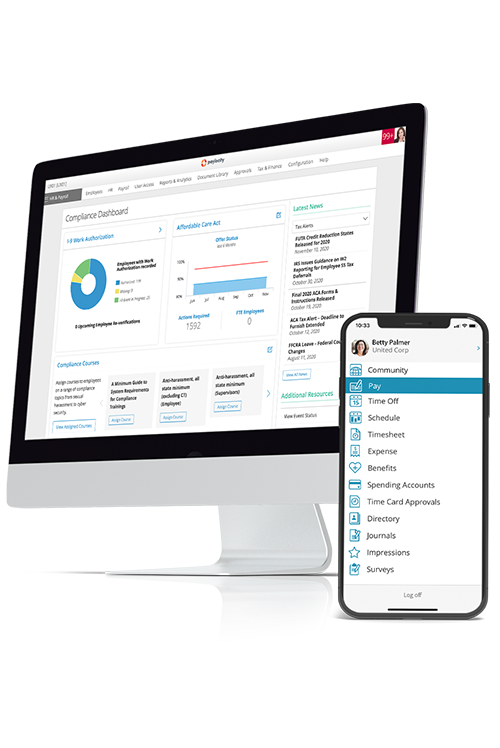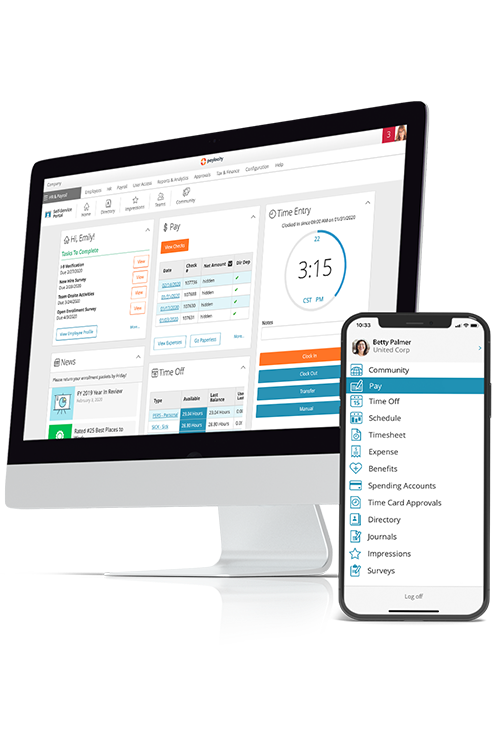
HR Workflows: Streamline and Automate Your Admin
Everyone needs something from Human Resources. It is the beating heart of your company, acting as the go-between for employees, managers, leaders, and teams to ensure everyone is paid correctly, accounted for, and treated fairly.
Despite the high-minded calling, many HR tasks are repetitive and time-consuming. And they can become utterly unmanageable as companies grow and need to scale.
This is the problem HR workflows were designed to solve, automating many of the daily tasks HR pros have traditionally handled so they can focus on the more strategic (and probably more enjoyable) aspects of the role.
Let’s explore the process of workflow automation and its many use cases in modern HR management.
What are HR Workflows?
HR workflows are automated sequences of tasks or processes that regularly occur in the sphere of HR management. Workflows apply to almost any HR responsibility, including things like payroll, recruitment, and time-off requests.
These functions are all essential to the smooth operation of a company, but can be time-consuming and tedious. A well-executed HR workflow reduces stress and saves time by standardizing regular processes and reducing manual intervention for highly predictable, repeatable tasks.
To build and execute HR workflows, most organizations use an HRIS or HCM software that has native workflow capabilities and integrations.
Learn More: HR Automation Explained: Advantages, Challenges, and Examples
The Benefits of HR Workflows
HR workflows are all about simplifying the lives of HR pros. Let's look at what that means for your organization:
- Improved efficiency: Streamline and automate many HR processes, saving time and improving efficiency.
- Reduced costs: Workflow automation means each HR pro on your team can accomplish more with less resources.
- Improved compliance: Standardizing and automating workflows helps ensure your HR processes remain compliant with applicable laws and regulations as your company scales.
- Improved employee satisfaction: HR workflows can improve employee satisfaction by providing fast, automated responses to common questions or automatically routing to appropriate parties.
- Improved decision-making: HR workflow tech can improve decision making by providing real-time data on how employees interact with regular processes, highlighting bottlenecks.
Clearly, there are many advantages to implementing effective HR processes — for your HR department and throughout your organization.

Six Examples of Common HR Workflows
Workflows may seem abstract, so let’s contextualize it with some examples of how you might execute an HR workflow with the help of an HRIS:
1. Recruiting
HR recruiting workflows encompass the processes involved from the moment a hiring manager posts a job listing to the point when onboarding begins.
Recruiting talent involves filtering through applications, screening candidates, ensuring the correct resumes reach the right hiring team, and arranging interviews. This involves a lot of back and forth between multiple parties. But many of these administrative steps can be automated with the right HR workflow.
In practice, this might look like:
- The recruiting team creates a job requisition within the HRIS system, and the job is automatically posted to target third-party job boards.
- As candidates apply, the hiring manager is alerted to applications.
- When a hiring manager indicates interest in an applicant, the HRIS sends a pre-generated email and prompts the candidate to schedule an interview.
- As candidates move through the interview process, the system alerts relevant parties and prompts interview scheduling.
- When a candidate is selected, the HRIS sends out a templated offer letter, populated with relevant role and salary information.
2. Document Collection
Automated workflows can alleviate back and forth regarding physical documentation.
Through HRIS workflows, HR can easily request necessary documentation or collect pertinent data through automated forms. The HR software will automatically store the information in the employee's record.
For example, let's say your organization requires certain employees to have a valid driver's license and an auto insurance policy. You might use a workflow with the following steps:
- The HRIS scans its employee database for employees who don’t have an associated driver's license and auto insurance record.
- The system automatically sends out notification to a form where the employee can upload a picture of their driver's license and fill out their insurance details.
- This information is automatically stored in the employee's record for easy future access.
3. Employee Time-Off Requests
HR employees often handle leave requests to make sure everyone who takes paid time off has those days to spend.
They can use automated HR workflows to track accruals and process leave requests. This guarantees the requests are all accessible from one central location and that all information on record is accurate and current.
Time-off requests might look like this:
- The employee uses a self-service portal to request time off.
- The HRIS automatically sends the request to the employee's direct manager.
- The manager is alerted to approve or deny the request.
- Depending on the manager's response, the HRIS alerts the employee, updates their time off balance, and automatically flags them as out of office during their leave.
A fully integrated HR and payroll suite will likely have this workflow directly baked into the platform. In this scenario, HR doesn’t need to get involved because the technology takes care of all the tracking.
4. Life Events
Big changes in an employee’s life, like marriage or having a child, are worth celebrating! But there’s also an administrative element that HR needs to complete — your employees might need to change their name, benefits elections, and update important tax documentation.
If your employee gets married, an HR workflow can help streamline this process:
- An employee notifies HR that they have recently gotten married and changed their name.
- HR initiates the Marriage workflow.
- The employee is automatically prompted to upload supporting documentation for their marriage and name change.
- HR approves or rejects the provided documentation.
- Once the documentation is approved, the employee is then asked to update personal information and complete an updated W-4. Since this is a qualifying life event, the employee is also prompted to update their benefits elections.
- The changes are sent to HR for final approval. Once approved, the HRIS updates the personnel file and stores digitized documentation within the employee record.
5. Annual Compliance Training
Most employees are required to complete some sort of annual training. In some cases, failure to provide the appropriate training to your workforce can lead to fines or pose safety risks.
Workflows help keep your organization compliant through automatic training requirements.
Let’s say your company requires all forklift drivers to take an annual forklift safety course. HR workflows can make sure the right employees are taking the course with the click of a button:
- When it comes time for annual training, HR can kick off the forklift safety training workflow.
- The HRIS interfaces with the learning management system and automatically assigns online training to all forklift drivers.
- Relevant employees receive a notification on their phone and/or through email.
- The system will periodically remind employees if they still need to complete the training.
- HR can then see who has and hasn't completed the training within the workflow dashboard.
6. Employee Termination and Offboarding
Saying goodbye to an employee is hard. Between knowledge transfer, equipment returns, and other offboarding procedures, there’s a lot to be done.
Amid this flurry, HR must complete critical administrative tasks, like updating contact information for any benefits coverage and collecting resignation documentation. HR workflows can help automate these standard tasks so you can focus on giving your employee a proper send-off.
An employee's departure or termination workflow might look like this:
- HR updates the employee record with the intended last day.
- The HRIS kicks off the employee termination workflow that notifies the departing employee with a few requests.
- The employee is prompted to fill out a resignation form, update their contact information, and complete an exit survey.
- Once the employee has completed the necessary tasks, it’s sent to their direct supervisor for approval.

Why Use HR Workflow Software?
When it comes to HR admin work, you've got two choices. Either you manage everything manually, or you use an HR workflow solution to do it for you. HR workflows are vital to helping your HR pros operate as effectively as possible.
A comprehensive HR suite will have integrated modules that make creating workflows simple. Many of the common HR automation use cases (like payroll, scheduling, performance management, etc.) will already be included in the platform's functionality. The right HRIS software will be able to build custom workflows, so you can automate the best way for your organization.
Request a demo to learn more about Paylocity’s robust automation capabilities.


?$Hero-Card$)
